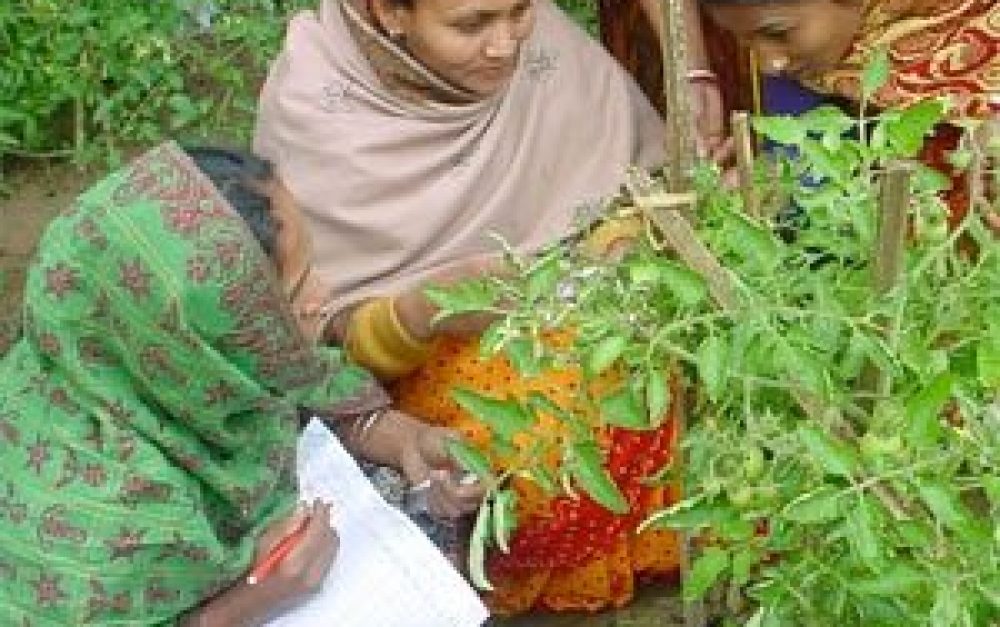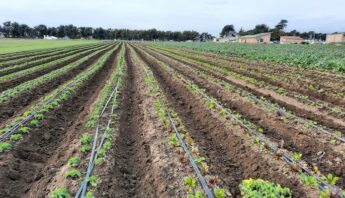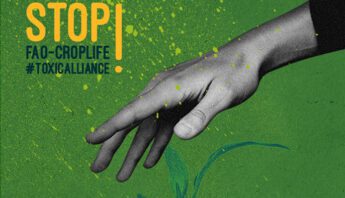In a new report, the U.N.'s Food and Agriculture Organization (FAO) stressed the need to transform agriculture and adopt “climate-smart” practices. No news there. The real surprise is what "climate-smart" ag does not mean for FAO.
With all the relentless hype from Monsanto & Co. around ag biotech's supposed role in feeding the world and providing the answer to climate change, I expected to find plugs for increasing investments in “biotechnology” or “GMOs” sprinkled throughout the entire report. I was wrong. The report simply and consistently stressed that “significant transformation” is required in agriculture; that effective “climate-smart” practices already exist and that an ecosystem approach with coordination across sectors and institutions is crucial to achieving meaningful climate change responses. Although FAO was a co-sponsor of the landmark International Assessment of Agricultural Knowledge, Science and Technology for Development (IAASTD), its commitment to IAASTD’s call for radical change has been less than impressive at times—to say the least. Yet this latest report contains solid findings that, as an agroecologist, I can agree with.
Water, soil & genes
FAO’s new website gives examples of production systems that are “climate-smart,” many of which are described in the FAO publication 'Climate-Smart' Agriculture: Policies, Practices and Financing for Food Security, Adaptation, and Mitigation.
“Climate-smart” agriculture is defined by FAO as “agriculture that sustainably increases productivity, resilience (adaptation), reduces/removes GHGs [greenhouse gases] (mitigation), and enhances achievement of national food security and development goals.” The emphasis throughout the report is very much on agroecological approaches to soil, nutrient, water and ecosystem management with explicit attention to the importance of preserving genetic resources of crops and animals—including wild relatives, which are critical in developing resilience to shocks. The report warns of the ecological damage, public health harms and unsustainable nature of industrial agricultural practices and technologies, and highlights the advantages of diversified agroforestry and urban and peri-urban agricultural systems.
Moving beyond the farm-gate, the report calls for policy and institutional change to create an enabling environment for climate-smart agriculture. One compelling example of institutional innovation is the evolution of farmer field schools in Indonesia (a highly regarded approach to ecological pest management based on farmers’ active participation in ecological field assessments) into “climate field schools.” Collective resource management activities are also highlighted, as well as the importance of improving farmers—particularly women’s—access to and control over resources, including property rights to land, water and genetic resources. The report argues for the establishment of financial mechanisms to support small-scale farmers in adopting “climate-smart” agriculture, such as credit, insurance, social safety nets and payments for ecosystem services. Finally, the report assesses various national and international financing options, favoring transparent approaches with mechanisms for greater accountability and ability to link financing directly to farmers’ beneficial practices on the ground.
Seems like quite a while since we've had a solid contribution—free of hype or political favors to industry—from a major U.N. organization regarding the future of agriculture. In the wake of USDA's recent bad behavior, there is some comfort in knowing that public agencies' fealty to Monsanto doesn't always extend all the way to Rome.







